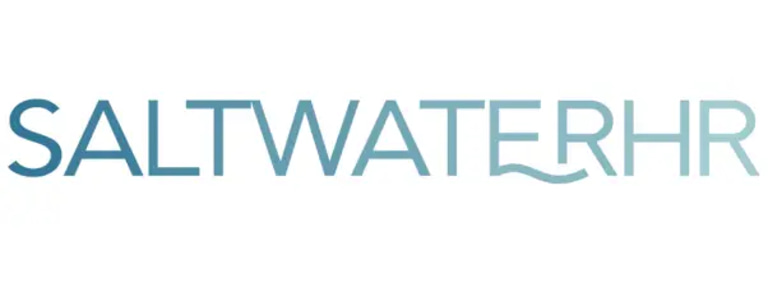HR Policies Required by Law UK: The Complete Guide for Small Businesses
Complete guide to HR policies required by law UK 2025. Essential employment policies, recent legal changes, compliance requirements for small businesses. Expert HR advice.
6/28/20253 min read


Getting your HR policies right isn't just good practice - it's a legal requirement. But with employment law constantly evolving, many small business owners are confused about which policies they actually need and which are simply "nice to have."
Let us walk you through exactly what's legally required and what could land you in trouble if it's missing.
The Policies You Must Have by Law
Health and Safety Policy
If you employ five or more people, you're legally required to have a written health and safety policy. This isn't optional - it's mandated by the Health and Safety at Work Act 1974. Your policy must outline how you manage health and safety in your workplace, including risk assessments and emergency procedures.
Even if you have fewer than five employees, having a health and safety policy demonstrates your commitment to employee welfare and can protect you if incidents occur.
Disciplinary and Grievance Procedures
Every employee has the right to know how disciplinary issues and grievances will be handled. While the specific format isn't prescribed by law, you must have clear, fair procedures that comply with the ACAS Code of Practice.
The absence of proper disciplinary procedures can make dismissals automatically unfair, potentially costing you thousands in tribunal awards. I've seen businesses lose cases simply because they didn't follow their own procedures or, worse, didn't have any procedures at all.
Equal Opportunities and Anti-Discrimination Policies
The Equality Act 2010 requires employers to prevent discrimination based on protected characteristics. While you're not legally required to have a written equal opportunities policy, having one demonstrates your commitment to compliance and provides clear guidance for managers.
More importantly, you must have procedures for handling discrimination complaints. Without these, you could face significant liability if discrimination occurs in your workplace.
Data Protection and GDPR
All businesses processing personal data must comply with GDPR requirements, including having clear data protection policies that outline how you collect, store, and share employee information. From our free GDPR audits, we frequently see compliance issues around document storage, data retention periods, and information sharing procedures - gaps that can result in significant fines if not addressed properly.
Policies You Need Due to Recent Legal Changes
Sexual Harassment Prevention
Since October 2024, employers have a legal duty to take reasonable steps to prevent sexual harassment in the workplace. This means you need clear policies and procedures specifically addressing sexual harassment, not just general harassment policies.
Many existing employee handbooks don't include specific sexual harassment policies, leaving businesses vulnerable to claims and potential tribunal awards.
Flexible Working Policies
With the right to request flexible working now available from day one of employment (changed in April 2024), you need clear procedures for handling these requests. The law requires you to deal with requests in a reasonable manner and within specific timeframes.
Industry-Specific Requirements
Depending on your sector, you may need additional policies:
Businesses with government contracts may need modern slavery statements
Companies with remote workers should have specific remote working policies
Businesses handling cash need clear procedures around financial controls
Businesses in the financial sector will need compliance policies and anti fraud and bribery policies
Hospitality businesses will need information on how tips are handled, and third party discrimination policies and risk assessments
Businesses in regulated industries should have a clear whistleblowing policy and procedure
The Policies That Protect Your Business (But Aren't Legally Required)
While not legally mandated, these policies can save you significant time, money, and stress:
Social Media Policy - Protects your reputation and clarifies expectations
Probationary Period Policy - Makes early dismissals easier and fairer
Sickness Absence Policy - Helps manage attendance consistently
Holiday Policy - Prevents disputes over leave entitlement
Common Compliance Gaps
These are the most frequent policy gaps we encounter:
Outdated contracts that don't reflect current employment law
Generic policies copied from the internet that don't fit the business
Missing sexual harassment procedures (a recent legal requirement)
Inadequate flexible working procedures following the 2024 changes
No clear disciplinary procedures or ones that aren't ACAS-compliant
Getting Your Policies Right
Creating compliant HR policies isn't about copying templates from the internet. Each business is different, and your policies need to reflect your specific circumstances, industry requirements, and company culture.
The key is ensuring your policies are:
Legally compliant with current employment law
Practical and implementable in your workplace
Clearly written so managers and employees understand them
Regularly updated as legislation changes
What Happens If You Get It Wrong?
The consequences of inadequate HR policies can be severe:
Employment tribunal claims can cost £10,000+ even when you win
Discrimination claims have no upper limit on compensation
Health and safety breaches can result in prosecution and fines
Poor procedures can make dismissals automatically unfair
More importantly, unclear policies create confusion, inconsistent management, and workplace disputes that damage team morale and productivity.
Next Steps for Your Business
If you're unsure whether your current policies meet legal requirements, consider:
Conducting an HR audit to identify gaps in your current documentation
Reviewing your employee handbook against current legal requirements
Updating policies to reflect recent changes in employment law
Training managers on how to implement policies consistently
Remember, having policies is only half the battle - they need to be implemented consistently and kept up to date as employment law evolves.
Need help ensuring your HR policies are legally compliant? Our comprehensive employee handbooks include all required policies tailored to your business needs. Download our template for £75, or book a free consultation to discuss our bespoke handbook services starting from £550.
Saltwater HR
Support
KEEP IN CONTACT
info@saltwaterhr.co.uk
07442 993534
© 2026. All rights reserved. Company No: 16121905
Expert HR solutions for your business needs.




